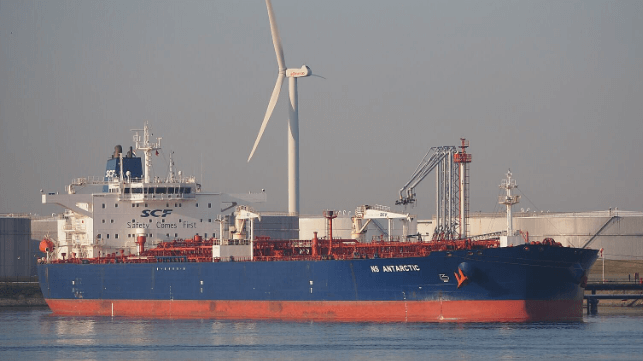White House Leaves Fleet-Sized Hole in Sovcomflot Sanctions

The Biden administration announced Friday that it had sanctioned the Russian tanker operator Sovcomflot, suggesting that it had changed SCF's preexisting sanctions status - but made no changes to the company's listing.
SCF's sanctions listing dates back to 2022 (Executive Order 14024). The listing has allowed and will continue to allow any lawful transaction with Sovcomflot, except for financing transactions involving long-dated debt or new equity.
The Treasury did issue stringent new sanctions on 14 specific Sovcomflot vessels, but made clear to oil traders that they could continue to use the vast majority of SCF's fleet without repercussions.
SCF publicly claims to own 147 ships - ten times as many as the number sanctioned. SCF's true current fleet size is difficult to verify, as sanctions have prompted the dispersion of the Russian fleet to overseas holding companies. However, a sanctioned ship management company that shares an SCF name - Oil Tankers SCF Management FZCO - operates about 75 ships, and the vast majority are former SCF vessels with original SCF names. This firm operates 12 out of the 14 Sovcomflot vessels sanctioned by the Treasury on Friday.
Enabling Russian oil exports
The Treasury has pursued a policy of allowing Russia to sell as much oil as the market demands, while attempting to reduce the price that it can charge per barrel. The objective of this "price cap" policy is to keep global oil markets stable, keep inflation in check, and reduce the oil revenue that fuels Russian operations in Ukraine.
According to the Center for Research on Energy and Clean Air (CREA), the price cap cut Russian energy revenue in 2023 by 14 percent - but "a failure to enforce, strengthen and consistently monitor the price cap allowed Russia to undo the impact in the second half of the year." The U.S. Treasury claims that stepped-up enforcement has recently pushed Russian oil prices down to a discount of $19 per barrel relative to Brent - reducing revenue by 25 percent and allowing Russia to collect about 75 percent of the oil revenue it would ordinarily receive.
If the 14-25 percent price reduction has made an impact on Russian finances, it does not appear to have had a decisive effect on the Russian military. Over the same period, Russian military spending rose by 60 percent, bolstering the Russian Army's numerical advantage in armor and artillery in eastern Ukraine.
No comments:
Post a Comment